The Performance
Part 1: The First Day
The day after I die, the school doesn't know what to do with itself.
There's no assembly at first. Just whispers in corridors, phones lighting up in pockets during registration, teachers glancing at each other with that look that says do you know? did you hear? By break time, everyone knows. By lunch, I'm a hashtag.
Jasper's the first to post. He always is. Chronically online, perpetually performing. His Instagram story: a black square with a white dove emoji and my name in a minimal sans-serif font. No caption. He doesn't need one. Within an hour, it's been reshared forty-seven times.
Mae doesn't find out until after school. She's been in rehearsals all day. The spring musical, Little Shop of Horrors, and she's playing Audrey, which means six hours of blocking and vocal warm-ups and trying not to trip over the puppet plant. When she finally checks her phone, there are thirty-seven messages in the group chat.
She reads them in reverse order, scrolling up and up until she reaches the beginning: Jasper's initial message at 9:47 a.m. "Guys. Rowan's dead."
No preamble. Just that.
Mae sits down on the kerb outside the theatre building. She's still in costume. Blonde wig slightly askew, lipstick smudged from the kissing scene they'd been rehearsing. The evening air smells like petrol and cut grass. Someone walks past and stares. She doesn't notice.
She hadn't known me well. We'd been in the same English class last year. She remembers I'd written an essay about The Catcher in the Rye that Mr Davies had read aloud as an example of "perceptive analysis." She remembers thinking I was clever. She doesn't remember ever telling me that. She doesn't remember my face when I sat at the back of the room, headphones on during breaks, the way I'd flinch when called on unexpectedly.
I remember, though. I remember everything.
Lila messages Jasper: "Is it true? About Rowan?"
"Yeah," he replies. "Found out from Mrs Patterson. She was crying in the staffroom."
Lila sits in the library toilet cubicle, phone clutched in both hands, reading and rereading the message. She's known me since Year 9. Not closely, but adjacent, orbiting the same social circles. She remembers me being quiet. Forgettable, maybe. She's already wondering if there's footage of me somewhere in her camera roll from last year's drama production. There is, actually: fourteen seconds of me adjusting stage lights in the background whilst she filmed Jasper's monologue.
She'll find it later. She'll cry when she does.
Theo's in art class when he hears. Someone (Anya, probably) leans over and whispers it whilst Mr Greenwood's talking about negative space. Theo's hand freezes mid-sketch, charcoal smudging under his thumb. He's drawing a self-portrait, or trying to. Now all he can see is my face instead of his own reflection. Not accurately. He's romanticising already, making my jawline sharper, my eyes more soulful than they ever were.
"You okay?" Anya asks afterwards.
"I didn't really know him," Theo says, which is true. We'd spoken maybe five times. But he's already rewriting that. Already imagining we'd been closer. It feels better that way.
Kai doesn't post anything. He just stares at his phone in the common room, scrolling through old group chat messages, looking for any time I'd said anything. There's not much. Mostly just "yeah" and "ok" and once, memorably, "haha yeah same" in response to something I clearly hadn't read properly.
He remembers the last time we spoke. Three weeks ago. I'd asked if I could borrow his biology notes, and he'd said he needed them himself, which was true, but also he'd spent that afternoon playing FIFA instead of revising. He wonders now if those notes would have made a difference. If I'd failed that test because of him. If that failure had been another weight on the scale.
He doesn't share this with anyone. Just sits there, refreshing Instagram, watching the black squares multiply like a digital vigil he doesn't know how to join.
By the time Mae gets home, the school's sent an email. "Dear Parents and Carers, it is with great sadness that we inform you of the sudden passing of one of our Year 13 students..." The usual language. Tragedy. Support services. Counsellors available. A reminder that social media can be harmful during times of grief.
Too late for that. I'm already trending locally. #RIPRowan. #GoneToSoon (spelled wrong, always spelled wrong). #MentalHealthMatters.
Mae lies in bed that night, staring at the ceiling. Her little brother's asleep in the next room. She can hear her parents watching television downstairs, the low murmur of some detective drama. Everything's normal. Everything's wrong.
None of them sleep well.
Part 2: The Memorial Wall
By Monday, there's a wall.
Not an official one. The school hasn't organised anything yet, still scrambling to figure out protocols and risk assessments and how to handle the press, who've started lurking near the gates with cameras. This is grassroots. Student-led. Spontaneous grief.
It starts with one Post-it note stuck to the wall outside the sixth-form common room. Pink, with a single word in Sharpie: "Why?"
By lunchtime, there are fifty more. By the end of the day, two hundred. The adhesive leaves sticky residue on the painted brick. Yellow, green, blue, orange. A mess of colour and sentiment.
"You were always so kind."
Was I? I don't remember being kind. I remember being polite, which isn't the same thing.
"I'll never forget your smile."
Which smile? The one I used to deflect questions? The one I practised in the mirror until it looked convincing?
"Heaven gained an angel."
I'm not in heaven. I'm here, watching Chloe from Year 12 take a selfie in front of the wall, angling herself so the Post-its are visible in the background. She's crying, but not so much that it ruins her makeup. She posts it with the caption: "Can't believe he's really gone check on your friends guys."
Eighty-three likes in twenty minutes.
Jasper adds a note too. His is different. Carefully written on expensive cream cardstock, not a Post-it. "You deserved better. We all failed you. I'm sorry." He pins it at eye level, dead centre, where everyone will see it.
It's true, actually. But Jasper's apology isn't for me. It's for him.
Mae arrives late, after drama practice. The corridor smells like floor polish and the faint sweetness of decaying flowers someone's left at the wall's base. She stands in front of it for a long time, reading note after note, her expression unreadable. Finally, she takes out a Post-it (plain yellow, nothing fancy) and writes: "I'm sorry I didn't notice."
She sticks it on the outer edge, away from the centre. It gets covered by other notes within an hour.
Lila's filming the wall. She's got her phone in one hand, panning slowly across the notes, capturing the colours and the handwriting and the teddy bears that have started appearing at the base. Someone's left a can of Monster Energy. My favourite, apparently, though I only drank it once because I was too anxious to sleep anyway and thought caffeine might help me focus. It didn't.
"This is important," she murmurs to Anya, who's standing beside her. "People need to see this."
"Are we coming together, though?" Anya asks quietly.
"What do you mean?"
"I don't know. It just feels... performative? Like, half these people never spoke to him."
"That's grief, though. People express it differently."
"Is it grief, or is it guilt?"
Lila doesn't answer. She keeps filming, but Anya's words lodge themselves somewhere under her ribs.
Theo's sitting on the floor near the wall, sketchbook open. He's drawing me again. Or a version of me. This one's based on a photo someone posted in the memorial group chat: me at a party last year, holding a plastic cup, mid-laugh at something off-camera. I remember that moment. Kai had just fallen off a chair. I'd laughed because everyone else was laughing, not because I found it funny. My stomach hurt from forcing it.
In Theo's sketch, though, the laugh looks genuine. Joyful, even. He's added details that weren't there: a gleam in my eye, a relaxed set to my shoulders.
"That's really good," says a girl from Year 12. Mia, maybe? She's looking over his shoulder, her own Post-it note half-written in her hand.
"Thanks," Theo says. He doesn't look up.
"Did you know him well?"
"Yeah," Theo lies. "We were close."
Mia nods sympathetically and adds her note to the wall: "Fly high, Rowan. You were one of the good ones."
I wasn't. I was just one of the ones who didn't make a fuss.
Part 3: The Assembly and the Plan
The school calls an emergency assembly on Tuesday morning.
The hall's packed. Every chair filled, students sitting on the floor at the edges, teachers lining the walls like sentries. The headteacher, Mrs Wainwright, stands at the podium, her face drawn and grey. She's been head for twenty years. She's seen students die before (a car crash in 2012, leukaemia in 2018), but this is different.
"As you all know," she begins, voice wavering slightly, "we have experienced a profound tragedy. Rowan was a valued member of our school community, and his loss is felt deeply by staff and students alike."
Valued. I'm not sure I was valued so much as tolerated. Present but unremarkable. The kind of student who never got detention but never won awards either. I existed in the gap between achievement and trouble, and that gap is wider than anyone wants to admit.
"We want you to know that support is available. Our counselling team is here, and we've brought in additional specialists. If you're struggling, please reach out."
Mae shifts in her seat, thinking about all the times she's walked past the counselling room. The door's always closed. There's always a waiting list. Always next week, next month, when things calm down.
After the assembly, Jasper stands up and asks if students can organise a memorial event. Mrs Wainwright looks flustered (this wasn't in the script) but agrees, cautiously. She suggests involving the school council, perhaps coordinating with the pastoral team.
Jasper nods, already planning.
By lunchtime, there's a group chat. "Rowan Memorial Committee." Jasper's added himself, Lila, Theo, Anya, Kai, Mae, and a handful of others.
Jasper: Right, so I'm thinking we do a gig. Acoustic sets, spoken word, maybe some art displays. Somewhere off-site so it feels less official. Thoughts?
Lila: Love that. I can film it and make a short doc. Something we can share to raise awareness.
Theo: I'll do some portraits. We could have them printed and displayed.
Kai: I'll help with sound setup.
Anya: Should we check with Rowan's family first?
Pause.
Jasper: Good point. I'll draft a message.
Mae: Do any of us actually have their contact details?
Another pause.
Lila: The school must have them. We can ask.
They don't ask. Not properly. Jasper sends a message via the school office, but it's vague and impersonal. My parents, still numb with shock, don't respond. He takes that as tacit approval.
Mae almost says something. Almost points out that silence isn't consent. But she doesn't want to be the one who ruins this, who stops people from processing their grief. So she says nothing, and the silence feels like complicity.
The plans escalate quickly. Jasper secures a venue (The Stumble, a pub that hosts open mics and small gigs). He gets the owner to waive the fee. "For the cause," the owner says, already imagining the goodwill press.
Lila creates a Facebook event. "A Celebration of Rowan's Life." She designs the banner herself: my face (from that same party photo) overlaid with soft, glowing text. It looks like an album cover. Within a day, three hundred people have clicked "interested."
Theo finishes six portraits. They're beautiful, in a tragic, romanticised way. Each one shows me in a different light: pensive, smiling, gazing into the distance. In one, I'm holding a book I never read. In another, I'm laughing at a sunset I never saw. None of them look quite like me, but they look like someone people would want to mourn.
Mae writes a speech. She doesn't plan to. It just happens, late one night when she can't sleep. She writes about how we live in a culture that valorises strength and stigmatises vulnerability. How schools focus on academic success but ignore emotional wellbeing. How I slipped through the cracks not because I was invisible, but because no one wanted to see.
It's raw and angry and true. She's not sure she'll ever deliver it.
Anya helps with logistics: making posters, booking equipment, liaising with the venue. She's good at the behind-the-scenes stuff, the unglamorous labour that no one notices. She doesn't mind. She's used to being invisible.
But she's also watching. Watching Jasper lean into his role as organiser-in-chief, watching Lila frame every interaction like a shot for her documentary, watching Theo sink deeper into his romanticised grief.
"Do you think we're doing this for him, or for us?" she asks Lila one afternoon, whilst they're printing posters in the library.
Lila looks up, surprised. "What do you mean?"
"I don't know. It just feels... big. Like, Rowan was quiet. He didn't like attention. And now we're throwing this huge event in his name."
"We're honouring him," Lila says, but the words sound rehearsed even to her.
"Are we? Or are we making ourselves feel better about not noticing he was struggling?"
Lila's jaw tightens. "That's not fair."
"Isn't it?"
They don't talk much for the rest of the afternoon. The printer hums and spits out poster after poster, each one advertising an event for someone neither of them really knew.
Part 4: The Fractures
The cracks start showing three days before the gig.
Mae's scrolling through Instagram during a free period when she sees it: a sponsored post from the school's official account. "Join us in remembering Rowan and supporting student mental health. Link in bio." The link goes to a JustGiving page. The school's set up a fundraiser.
She stares at her phone, heat rising in her chest. The fund's goal: £5,000. The description talks about improving counselling services, training staff, creating a legacy in my name.
She screenshots it and sends it to the group chat.
Mae: Did anyone know about this?
Jasper: Oh yeah, Mrs Wainwright mentioned it. Thought it was a good idea tbh.
Mae: They're fundraising off his death.
Jasper: They're fundraising for mental health support. That's different.
Mae: Is it?
Lila: I mean, if it helps other students...
Mae: If they cared about helping students, they'd have helped Rowan when he was alive.
Silence in the chat.
Theo: That's harsh, Mae.
Mae: Is it? Or is it true?
She logs off before anyone can reply. Her hands are shaking. She thinks about the counselling room with its always-closed door, the way teachers would ask "are you okay?" in passing but never wait for an honest answer, the assemblies about mental health that ended with a website link and nothing more.
That evening, Mae shows up at Jasper's house unannounced. He's in his garage studio, mixing tracks for the gig, surrounded by cables and equipment and half-drunk mugs of coffee that have gone cold.
"We need to talk," Mae says.
Jasper pulls off his headphones. "What's up?"
"This whole thing. The gig. The fundraiser. It's getting out of hand."
"Out of hand? We're honouring Rowan."
"Are we? Or are we building a monument to our own guilt?"
Jasper frowns. "What's your problem, Mae? We're trying to do something good here."
"Good for who? Rowan's dead. He doesn't benefit from any of this. His parents are barely holding it together. And we're throwing a gig like it's a festival."
"So what, we should just do nothing? Pretend he didn't exist?"
"I'm not saying that." Mae's voice drops. "I'm saying maybe we should ask ourselves why we're really doing this. Is it for him, or is it so we can tell ourselves we're good people?"
Jasper's expression hardens. "You don't get to question everyone's motives just because you're feeling guilty."
"I am guilty. We all are. That's the point. And instead of sitting with that, we're performing grief for an audience."
"That's not fair."
"Isn't it?" Mae's voice cracks. "You're already planning what songs to play. Lila's framing shots for her documentary. Theo's turning him into some tragic muse. None of us actually knew him. None of us bothered to."
"That's not—"
"It's true, Jasper. And you know it."
She leaves before he can respond. The garage door closes behind her with a hollow thud, and Jasper sits alone in the fluorescent light, surrounded by equipment for an event he's no longer sure should happen.
The next day, the group chat's quieter. Anya messages Mae privately: "You okay?"
Mae: Not really. You?
Anya: I don't know. I keep thinking about what you said. About whether we're doing this for him or for us.
Mae: And?
Anya: I think it's both. Maybe that's okay. Maybe nothing's ever purely one thing.
Mae: Maybe. But it still feels wrong.
Anya: Yeah. It does.
Lila, meanwhile, is spiralling. She's been editing footage for her documentary, and the more she watches, the more uncomfortable she feels. She's got shots of people crying, of the Post-it wall, of Jasper performing. It's compelling. It's also exploitative. The camera lingers on tears, on embraces, on the aesthetic of grief rather than its substance.
She shows a rough cut to her older sister, who studies film at uni.
"It's good," her sister says carefully. "Technically, I mean. But... what's it actually about?"
"Rowan. His death. How it's affected people."
"Is it, though? Because it feels more like it's about the performance of grief. Like you're documenting the spectacle, not the person."
Lila's throat tightens. "That's not what I meant to do."
"I know. But intent isn't the same as impact."
That night, Lila watches the footage again. Her sister's right. She's turned my death into a narrative, complete with a three-act structure and emotional beats. She's made it beautiful. But beauty isn't truth, and truth is what I deserved.
Theo's having his own crisis. He's finished the portraits, but now he's looking at them and seeing the lie. These aren't me. They're icons, symbols, avatars of tragedy. He's erased my awkwardness, my ordinariness, my humanity. In his portraits, I'm mysterious, brooding, photogenic in death in ways I never was in life.
He tries to draw me again, more honestly this time. But honesty isn't romantic. It's a boy who looked tired all the time, who hunched his shoulders, who avoided eye contact. Who wore the same three hoodies on rotation because they were comfortable and shapeless and safe. It's not the kind of portrait people want to see at a memorial.
He tears it up. Then he tapes it back together and stares at it until his eyes hurt.
Kai's struggling too, though he won't admit it. He's been volunteering at the crisis helpline for two weeks now, taking calls in the evenings, talking people down from ledges both literal and metaphorical. He sits in his bedroom with a headset on, listening to strangers confess their darkest thoughts, and he wonders if I ever tried to call, if my voice is somewhere in the system, preserved in a recording he'll never hear.
One night, he gets a call from a boy around our age. Anxious, spiralling, convinced he's a burden on everyone around him.
"You're not a burden," Kai says. The words feel hollow even as he means them.
The boy on the phone is crying. "How do you know?"
"Because I've been where you are. And I know it feels impossible, but it's not. You just have to hold on."
"Did you hold on?"
Kai pauses. "Yeah. I did."
It's not a lie, exactly. But it's not the whole truth either. He held on, but I didn't. And he doesn't know why he survived his own dark period when I didn't survive mine. Luck? Support? Sheer stubbornness? Or maybe just the fact that his crisis came during summer holidays when there was less pressure, fewer expectations, more time to breathe.
When the call ends, Kai sits in his room and cries for the first time since I died. Not neatly. Not cinematically. Just messy, ugly sobbing that leaves him exhausted and hollow.
Part 5: The Reckoning
The night before the gig, Mae goes to the school. It's past eight, dark except for the security lights that cast long shadows across the car park. She uses the side entrance that's always left unlocked for the cleaners.
The Post-it wall has grown. It's even bigger now. Overflowing, sagging under the weight of performative sentiment. She reads note after note, and with each one, her anger grows.
"You were a light in this world."
I wasn't. I was just here, trying not to take up space.
"Heaven needed another angel."
Heaven didn't need anything. I needed help, and no one gave it.
"Gone but never forgotten."
I was forgotten whilst I was alive. That's why I'm dead.
Mae pulls out her phone and starts filming. She pans across the wall, capturing every note, every teddy bear, every candle that's burned down to nothing. The adhesive residue. The water stains from flowers. Then she turns the camera on herself.
"This," she says, voice shaking but steady, "is what we do instead of helping people. We wait until they're dead, and then we perform our grief so publicly that we never have to actually examine why they're gone."
She posts it to her Instagram story. No caption. Just the video.
Within an hour, it's been viewed three thousand times. Within two, it's been shared across multiple platforms. The comments are split: half supporting her, half accusing her of being disrespectful, of ruining the memorial, of making it about herself.
Jasper calls her. "What the hell, Mae?"
"What?"
"That video. You're making us all look bad."
"Maybe we should look bad. Maybe that's the point."
"You can't just—"
"I can. And I did. If you don't like it, that's your problem."
She hangs up. Her hands are still shaking, but there's a clarity to it now. A purpose.
Lila messages her: "Can we talk?"
Mae: Not really in the mood.
Lila: Please. I think you're right.
Mae calls her.
"About what?" Mae asks.
"All of it," Lila says quietly. "The gig, the documentary, the whole... performance. I've been editing footage for days, and the more I watch, the more I realise I'm not documenting grief. I'm documenting theatre."
"So what are you going to do?"
"I don't know. Scrap it, maybe. Or at least be honest about what it is."
"Which is?"
"A bunch of kids who didn't know Rowan trying to convince themselves they did."
Mae exhales slowly. "Yeah. That sounds about right."
They talk for an hour. It's the first real conversation either of them has had in days. They cry. They laugh once, darkly, at the absurdity of it all. They wonder if I would have found this funny or devastating. They realise they don't know.
Part 6: The Event
The gig goes ahead. Of course it does. Too much has been invested, too many people are coming, too much social capital is at stake. But it's different now. There's a tension in the air, a self-awareness that wasn't there before.
The Stumble smells like beer and wood polish and too many bodies in a small space. Theo's portraits are displayed near the door. The Post-it notes have been carefully arranged on a board. Candles flicker on tables. Someone's made a slideshow of photos that plays on a loop on the back wall (most of them aren't even me, just generic teen moments that could be anyone).
Jasper opens with his acoustic set, but halfway through, he stops. The crowd's swaying along, phones out, filming. He looks at them (really looks) and sees what Mae saw.
"Hold on," he says into the mic. The music stops. "I need to say something."
The room goes quiet. Even the bartender pauses mid-pour.
"I didn't know Rowan," Jasper says. "Not really. I thought I did. I thought we all did. But I'm realising now that most of us are here because it makes us feel like good people. Like we care."
Someone near the front starts crying. Jasper sees Mae at the back, arms folded, watching. Anya's beside her.
"I'm not saying we shouldn't be here," Jasper continues. "I'm just saying we should be honest about why we are. This isn't really for Rowan. It's for us. And that's... that's okay, I think. As long as we're not pretending otherwise."
He picks up his guitar and starts playing again, but the song's different. Quieter. Less performative. No practised runs, no Instagram-ready falsetto. Just his voice, uncertain and real. The crowd doesn't sway this time. They just listen, and some of them look uncomfortable, like they've been caught in something they can't name.
Lila's still filming, but she's changed her approach. She's not framing shots anymore. Just documenting. When someone cries, she doesn't zoom in. When someone performs, she doesn't linger.
Theo's portraits are displayed near the door. People stop to look at them, and he watches their reactions. Some of them are clearly moved. Others look confused, maybe recognising that the boy in the portraits isn't quite the boy they remember.
One person (a girl from my form, Emma) stops in front of the most romanticised portrait and frowns.
"That doesn't really look like him," she says to Theo.
"Doesn't it?" Theo asks.
"No. He was... softer, I think. Less dramatic. He mostly just looked tired. And his hair was never that neat."
Theo nods slowly. "You're right. I should have drawn him that way."
"Why didn't you?"
"Because I didn't want to remember him being tired. I wanted to remember him being... I don't know. More than he was."
"But he wasn't more. He was just a person. Isn't that enough?"
Theo doesn't have an answer. Emma moves on, and he stands there looking at his own work, seeing all the ways he turned me into someone I wasn't. Later, he'll take the portraits home. He'll burn five of them. He'll keep one (the one he tore up and taped back together, the honest one) and hang it in his room. It's not beautiful. But it's true.
Kai's running sound, but halfway through the night, he steps outside for air. The alley behind The Stumble is cold and smells like bins and cigarette smoke. Mae follows him.
"You alright?" she asks.
"Not really." He lights a cigarette, hands shaking slightly. "I keep thinking about the last time I saw him. He asked to borrow my notes, and I said no. It wasn't malicious or anything. I just... I needed them. But what if that was, like, the final straw? What if I could have—"
"You couldn't have," Mae interrupts gently. "It wasn't one thing. It was everything. All of us, all the time."
"That doesn't make me feel better."
"It's not supposed to. But blaming yourself for one moment isn't fair either. We all had a thousand moments. I sat next to him in English for a year and never once asked how he was doing beyond small talk. Anya was in his form and never noticed when he stopped coming to lunch. It's all of us. That's the point."
Kai takes a drag, exhales slowly. "So what do we do now?"
"I don't know. Actually care, maybe. Actually notice when people are struggling."
"Easier said than done."
"Yeah. It is."
They stand in silence for a while, watching people filter in and out of the venue. The gig continues inside (music and spoken word and tears). Outside, it's just two people trying to figure out how to carry the weight of what they didn't do.
Mae finally delivers her speech. Not all of it. She cuts the parts that feel too much like a lecture, the parts that sound good but don't actually say anything. What's left is raw and uncomfortable. She talks about how I asked for help once, in Year 11, and the counsellor was booked for three weeks. How by the time the appointment came round, I'd learnt not to ask. She talks about how we're all complicit in a culture that values stoicism over honesty, performance over presence.
Some people nod. Some people look away. No one posts it to Instagram.
Part 7: What Remains
The documentary never gets finished. Lila tries for weeks, but she can't reconcile what she filmed with what she wants to say. Eventually, she abandons it. Not publicly. She just stops working on it, stops mentioning it, lets it fade into the background like so many unfinished projects. Sometimes she thinks about me when she's filming other things, about the ethics of capturing grief, about whose story she's really telling.
Jasper writes a song called "The Wake." It's raw and self-critical, nothing like his usual polished indie-folk. He performs it once, at an open mic night months later, and never plays it again. It's too honest. Too uncomfortable. But he keeps the recording on his phone, and sometimes, when he's about to post something performative, he listens to it and deletes the draft instead.
Mae's letter to my parents gets a response, eventually. My mum writes back, thanking her for her honesty, for not sugarcoating things. She says it's the only letter she received that didn't feel like a performance. Mae frames it. Not in a weird way. Just as a reminder. Of what honesty costs, and why it matters.
Kai keeps volunteering. He's been doing it for six months now, and it's still hard, still exhausting, but it's also the only thing that makes him feel like he's doing something real.
One night, he gets a call from someone who sounds eerily like me. Same cadence, same anxious spiralling, same conviction that the world would be better off without them.
"It wouldn't," Kai says. And this time, he believes it. This time, he stays on the phone for an hour, doesn't rush the conversation, doesn't offer empty platitudes. When the call ends, the person is still alive. It's not much. But it's something.
Anya's started speaking up more in class. It's small. Answering questions, disagreeing when she thinks someone's wrong, taking up space in conversations. But it's progress. She's learning that silence isn't neutrality, and that complicity can be passive. She's learning that witnessing isn't the same as caring, and caring requires risk.
The Post-it wall's been taken down. The school archived the notes, supposedly, though no one's quite sure what that means. Probably they're in a box somewhere in the admin office, slowly fading, adhesive dried out, colours bleeding into each other.
The fundraiser reached its goal. The school hired an additional counsellor, implemented termly wellbeing check-ins, ran a staff training session on mental health. The waiting list for counselling is still three weeks long. The check-ins are often rushed, box-ticking exercises. But sometimes (sometimes) a student is asked how they're doing, and the asker actually waits for an answer. Sometimes that's enough.
I watch all of this from wherever I am. Not heaven, not hell, just... here. Observing. Haunting, maybe, though not in a scary way. More like a presence that lingers, reminding them of what they didn't do and what they're trying to do now.
Sometimes I wonder if it's enough. If any of this makes a difference. If the next kid who's struggling will get noticed, will get help, or if they'll slip through the cracks just like I did.
I don't know. I can't know.
What I do have is this: the knowledge that my death, as pointless and preventable as it was, cracked something open. Not in everyone. Some people moved on within weeks, forgot me as easily as they ignored me when I was alive. But in a few people (Mae, Kai, Anya, maybe even Jasper and Lila and Theo) something shifted.
They're not perfect. They still perform sometimes, still make mistakes, still fail to notice when someone's struggling. But they're trying.
A year after I die, the school holds a remembrance assembly. It's smaller this time. Quieter. No black squares on Instagram, no viral hashtags. Just a few words from Mrs Wainwright, a moment of silence, and a reminder that if anyone's struggling, help is available.
Mae's sitting in the back row, next to Anya. They're both thinking the same thing: It wasn't available for Rowan. But maybe it will be for the next person.
After the assembly, they walk past the spot where the Post-it wall used to be. The wall's blank now, repainted pale blue. But if you look closely, you can still see the faint outlines of where the notes were stuck. Ghosts of colour. Impressions left behind.
"Do you think about him?" Anya asks.
"Every day," Mae says.
"Me too."
They keep walking. Behind them, the corridor's empty except for the usual sounds. Lockers slamming, distant laughter, the hum of fluorescent lights. But I'm there, watching. Witnessing.
I don't know if they'll remember me in five years. Ten. Twenty. I don't know if I'll fade into just another tragedy, just another cautionary tale told in mental health assemblies and ignored just as quickly.
But for now, in this moment, I'm remembered. Not perfectly. Not even accurately, always. But remembered. And maybe in the end, that's all a ghost can ask for. That, and the hope that the next person who's struggling might be seen in time. That someone might notice. That someone might care enough to look past the performance and see the person underneath.
Maybe that's all any of us can ask for.
If you or someone you know is struggling with thoughts of suicide, please reach out. In the UK, call Samaritans on 116 123. In the US, call 988. You matter. Your story isn't over.
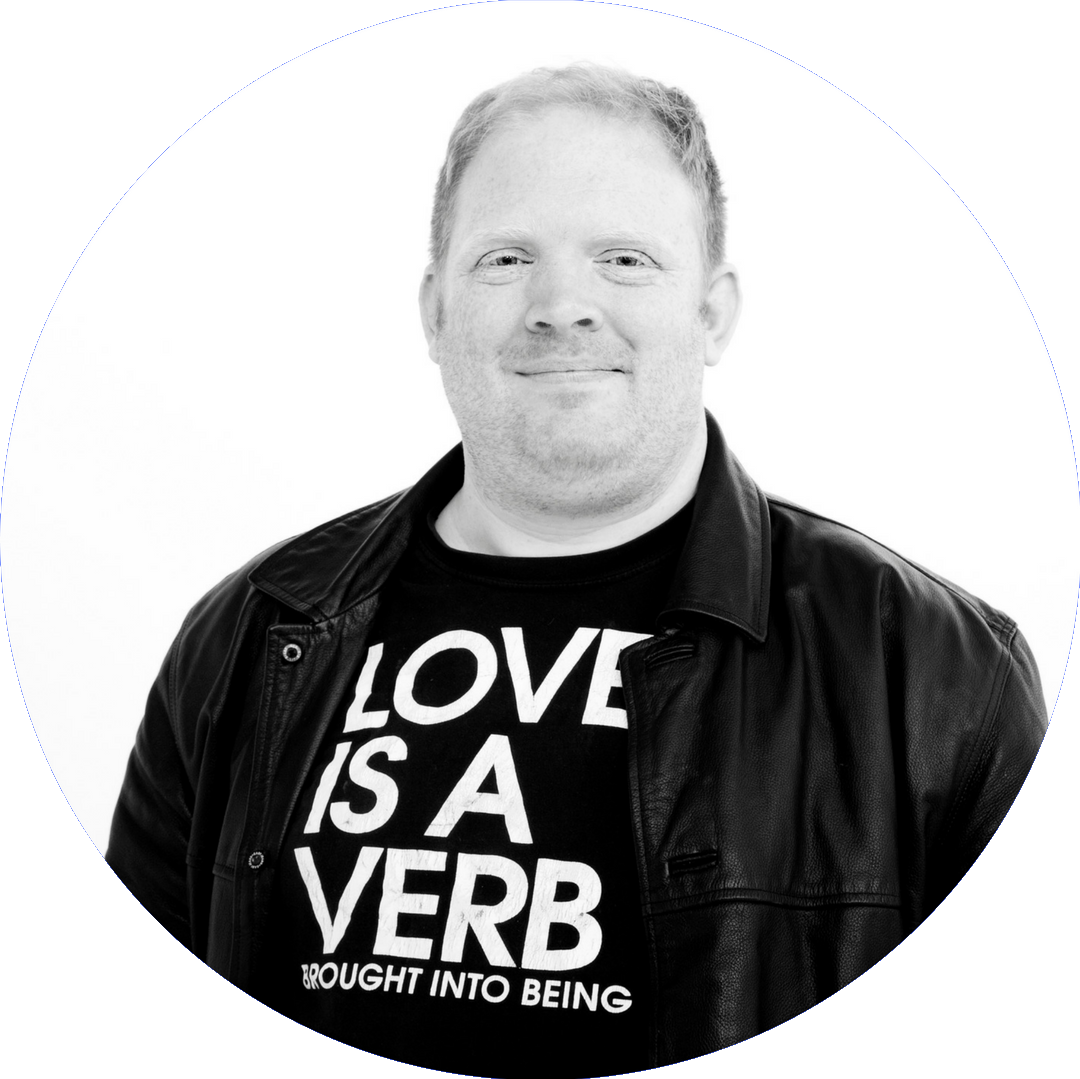
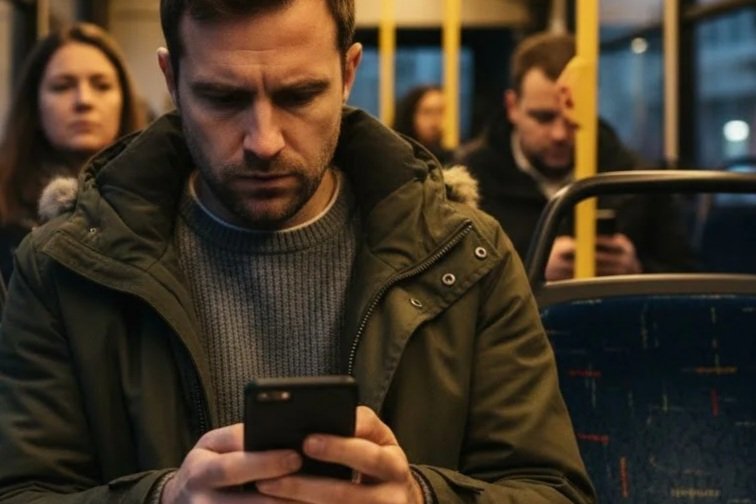
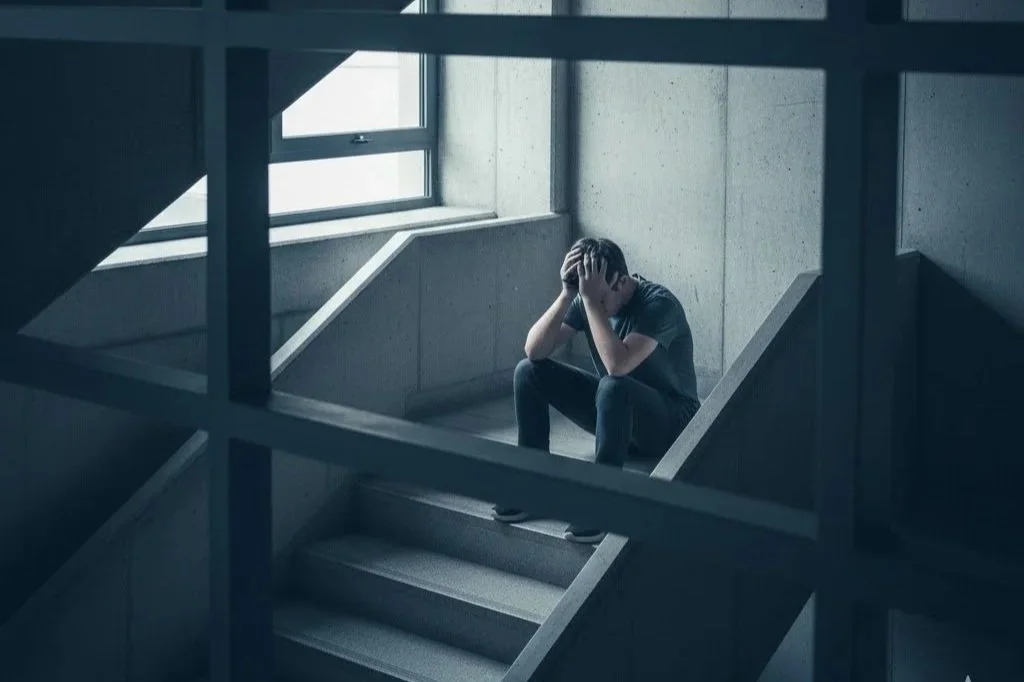
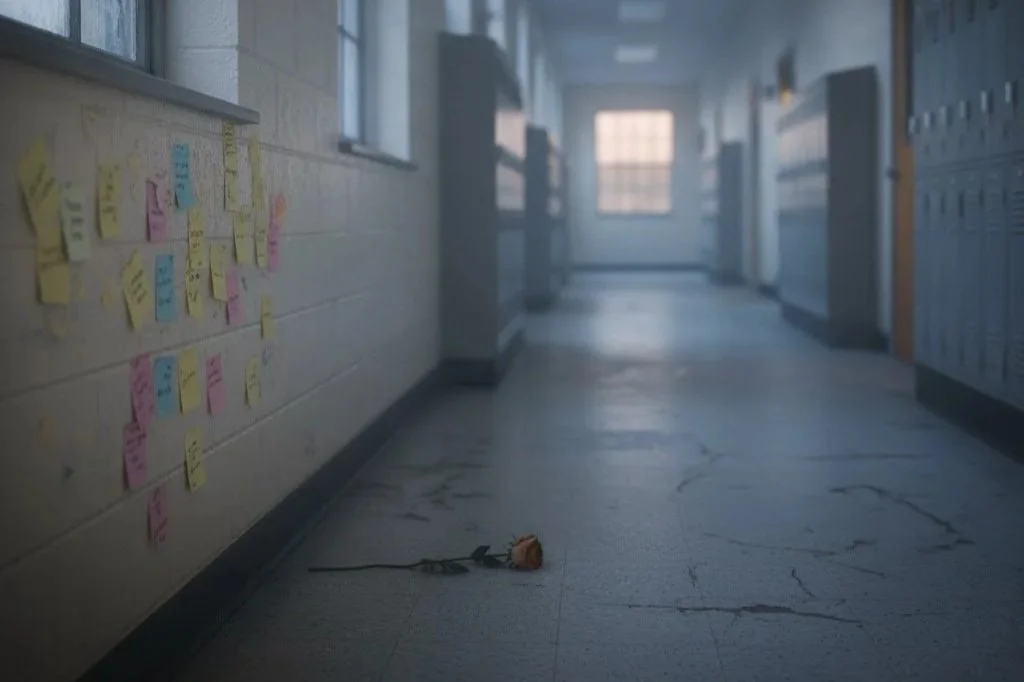

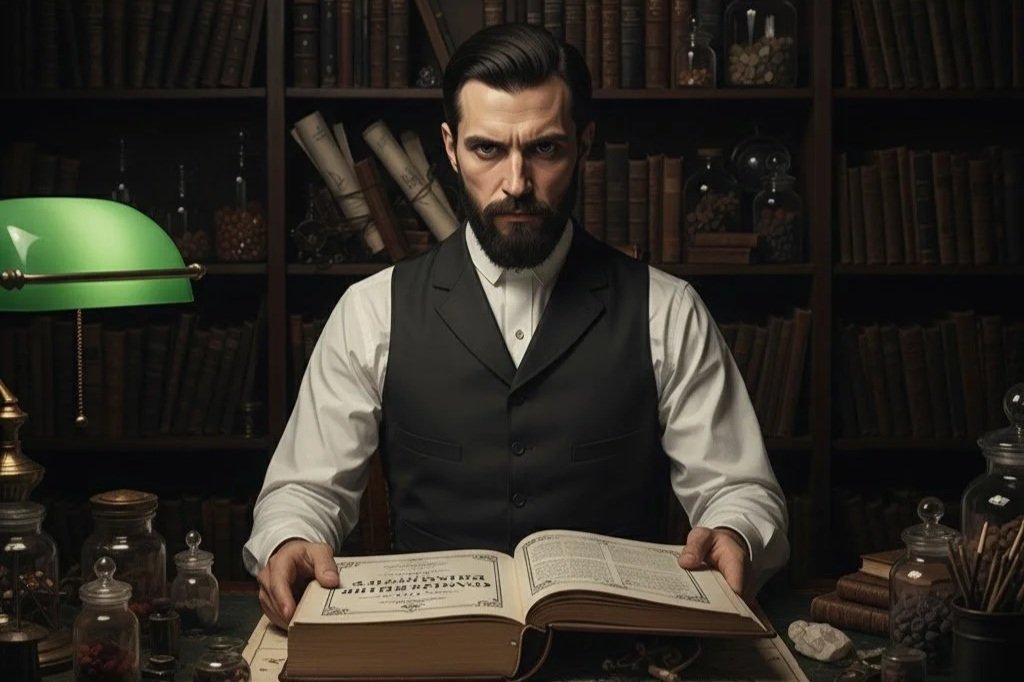

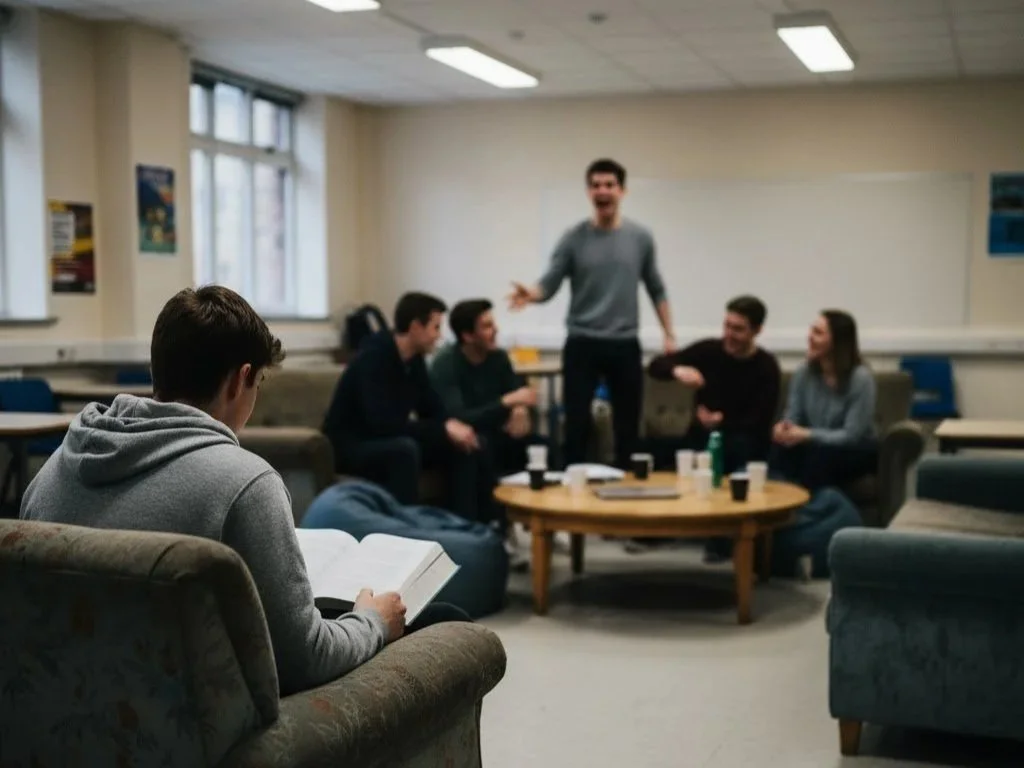


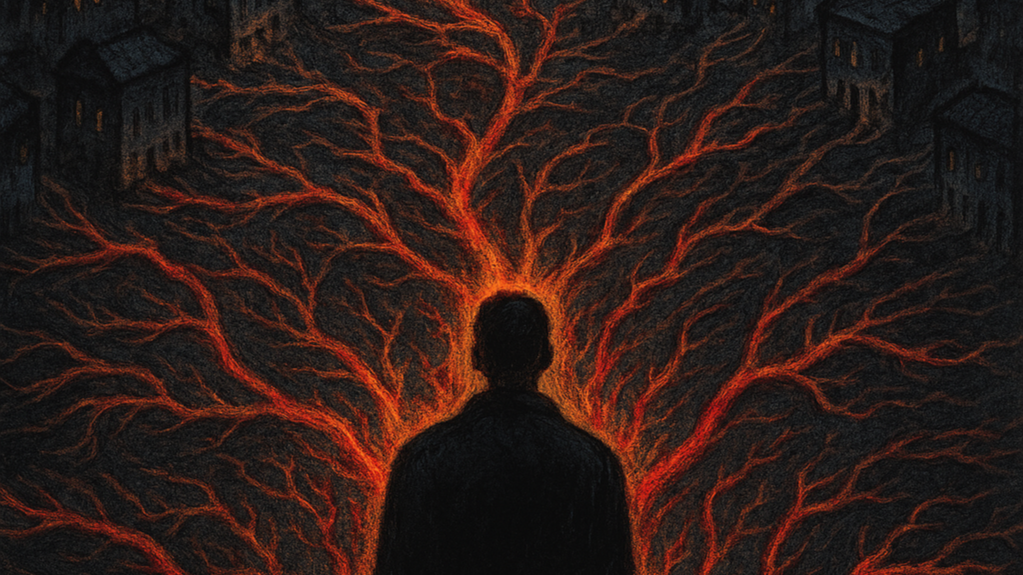

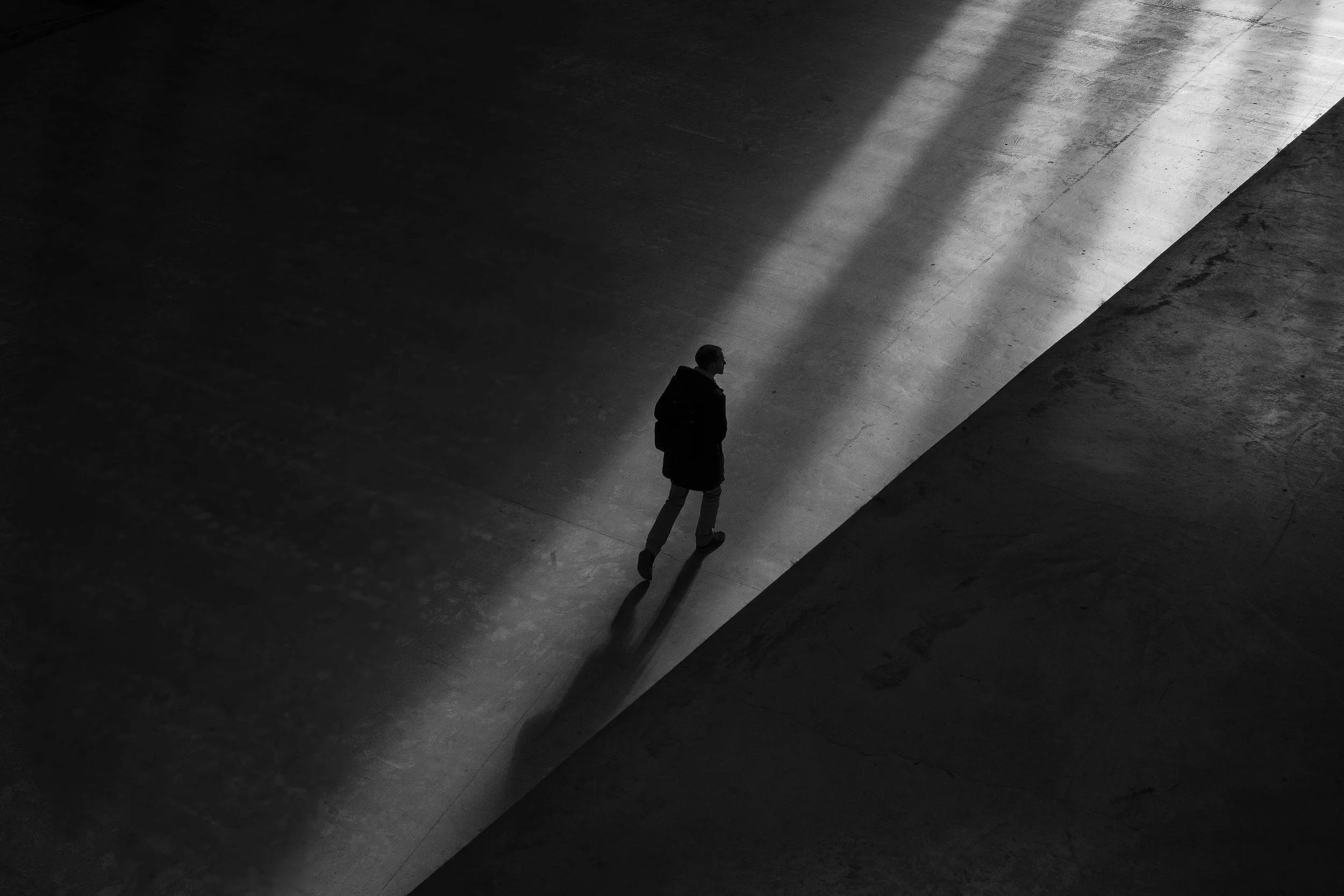





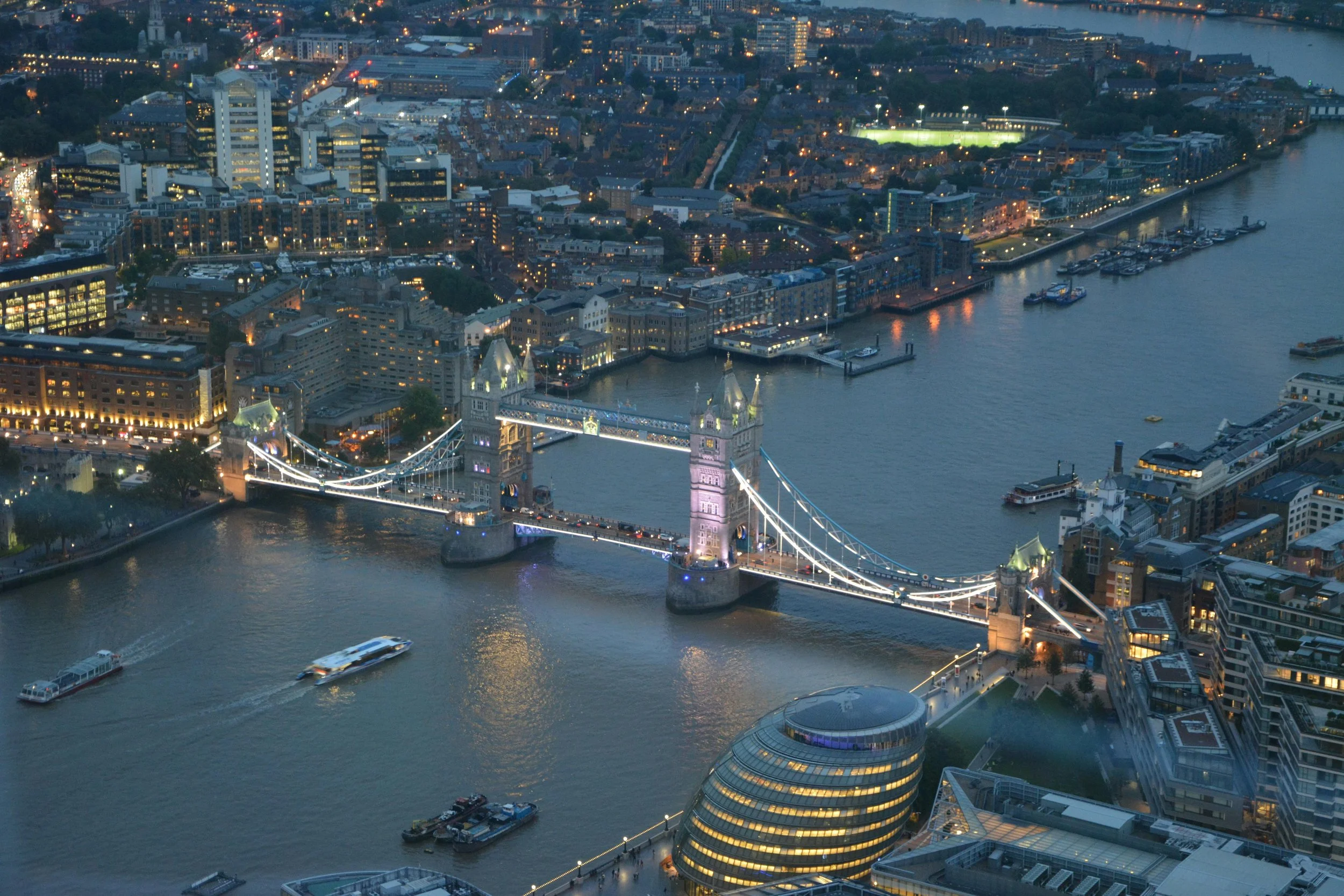





In a kingdom where the King declares war on numbers, communicates with pineapples, and maps military strategies on breakfast cereals, young Peabody might be the only sane person left—though that's not saying much when you live in a treehouse held together by duct tape and stubbornness, fifty feet above where the ground used to be before your grandmother accidentally knitted it into a cushion. When the Princess vanishes and the palace descends into weaponised chaos involving backwards bagpipe music, a philosophising baked bean drowning in custard, and a teddy bear whose broken watch hums Andrew Lloyd Webber as a form of prophecy, Peabody is summoned to solve the mystery using his greatest talent: the ability to listen without screaming about root vegetables. What he discovers is far more dangerous than any kidnapping—a clever girl who's had quite enough of the madness, a machine that translates nonsense into sense, and the revolutionary idea that perhaps, just perhaps, a kingdom shouldn't be run like an elaborate joke that's forgotten its punchline.